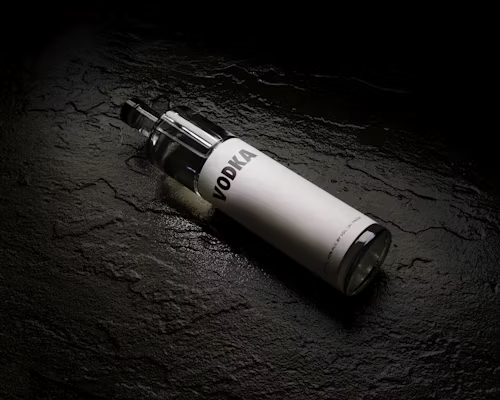Scotland has made significant strides in cutting alcohol-related deaths by introducing minimum pricing for low-cost supermarket alcohol. While this approach has shown positive results, it is not a complete solution.
The Impact of Minimum Unit Pricing (MUP) in Scotland
In late September, Scots witnessed a sudden price surge in the cheapest whisky. The price jumped from £14 (€16.80) to £18.20 (€21.84) overnight. This increase followed changes to Scotland’s Minimum Unit Pricing (MUP) law, which aims to curb risky drinking. Initially set at £0.50 (€0.60) per unit in 2018, the price was raised to £0.65 (€0.78) in April 2023 to align with inflation.
The MUP policy targets excessive drinking, which often leads to hospitalizations and deaths. Dr. Peter Rice, a psychiatrist, highlighted the trend of older men switching from beer and whisky to cheaper, high-alcohol ciders consumed at home. He stressed that pricing plays a crucial role in shaping drinking habits.
Following over a decade of advocacy from health experts and public health groups, MUP legislation was passed, making Scotland’s pricing strategy the most comprehensive in Europe. Early results suggest the policy is working. Research from Public Health Scotland (PHS) and the University of Glasgow shows that, while alcohol-related deaths are rising across the UK, they are increasing more slowly in Scotland. By the end of 2020, MUP was linked to a 13.4% reduction in alcohol-related deaths (156 lives saved) and a 4.1% drop in hospital admissions (400 fewer cases), especially in poorer communities.
However, the policy has not significantly reduced deaths from alcohol poisoning. In 2022, Scotland recorded 1,277 alcohol-related deaths—the highest since 2008. Dr. Tara Shivaji, a PHS consultant, acknowledged that while MUP helps high-risk drinkers, it alone is insufficient to reverse the broader trend.
European Response to Scotland’s MUP Policy
Scotland’s MUP strategy has inspired similar policies in other European regions. Wales and Ireland adopted MUP in 2022, and Northern Ireland plans to follow suit. Some former Soviet countries have introduced minimum pricing on specific drinks like vodka, while nations like the Netherlands have discussed MUP implementation.
The World Health Organization (WHO) has encouraged other countries to consider MUP policies. However, adoption has been limited. Many countries impose alcohol taxes and regulate retail prices. For instance, England bans below-cost alcohol sales but stops short of minimum pricing.
Experts, like Franco Sassi of Imperial College London, argue that taxes alone may not sufficiently deter consumption of cheap alcohol. MUP directly raises prices, especially for low-cost, high-alcohol drinks. Despite its benefits, MUP has limitations. It does not generate revenue for government programs addressing alcohol-related harm. Moreover, while many drinkers may reduce consumption, those with alcohol dependence may still prioritize alcohol over essential expenses.
Dr. Shivaji emphasized the importance of monitoring unintended effects. Fortunately, Scotland has seen no significant rise in black market alcohol sales or increased drug use due to MUP.
Looking Beyond Pricing Strategies
While MUP plays a vital role, other measures are necessary to reduce alcohol harm. Sassi advocates for mandatory health warning labels on alcoholic beverages, set to become law in Ireland by 2026 despite opposition from the alcohol industry. Both Sassi and Dr. Rice stress the need for stronger treatment resources for people struggling to quit drinking.
Addressing harmful drinking requires a multi-faceted approach, given alcohol’s deep cultural roots. Sassi highlighted the science behind alcohol’s harm, stating, “The science is clear—alcohol is harmful at any consumption level.” However, changing public perceptions of alcohol consumption is challenging.
Dr. Rice concluded that affordability must be addressed through pricing measures like taxation or MUP. He noted that public education alone is not enough when cheap alcohol is readily available. “Price controls can amplify the impact of other measures,” he said, reinforcing the case for MUP as part of a broader strategy to reduce alcohol-related harm.
